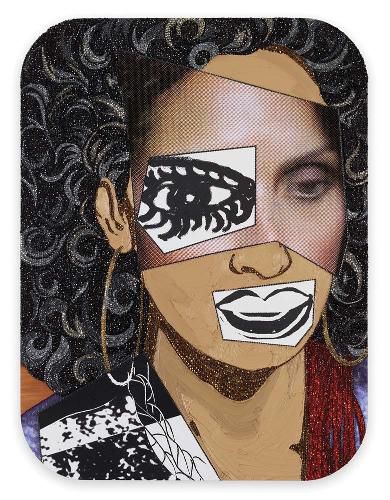Readings Newsletter
Become a Readings Member to make your shopping experience even easier.
Sign in or sign up for free!
You’re not far away from qualifying for FREE standard shipping within Australia
You’ve qualified for FREE standard shipping within Australia
The cart is loading…






Deconstructing the charged connections between sitter, artist and viewer
Presenting paintings of some of the artist’s key models and muses, I Can’t See You Without Me illuminates the work of Brooklyn painter Mickalene Thomas (born 1971). Culling from art history and popular culture, Thomas creates scintillating portraits that deconstruct the highly charged connections between sitter, artist and viewer. Whether depicted as classically composed 19th-century odalisques, Afro-adorned vixens of blaxploitation films or as a powerful maternal figure yearning for social mobility, the recurring models in Thomas’ compositions (almost exclusively women of color) convey a spirit of strength and self-confidence. Across this archetypal array, it is both their contradictions and kinships that make the black female body such fertile terrain for the artist’s ongoing investigations. By casting herself, her late mother and other formidable women in her life as models, muses and collaborators, Thomas particularizes her distinctive oeuvre of portraiture. Focused yet expansive, the catalog both reasserts and further contextualizes issues of identity, sexuality and agency in Thomas’ work that have only become more nuanced and palpable over time.
$9.00 standard shipping within Australia
FREE standard shipping within Australia for orders over $100.00
Express & International shipping calculated at checkout
Deconstructing the charged connections between sitter, artist and viewer
Presenting paintings of some of the artist’s key models and muses, I Can’t See You Without Me illuminates the work of Brooklyn painter Mickalene Thomas (born 1971). Culling from art history and popular culture, Thomas creates scintillating portraits that deconstruct the highly charged connections between sitter, artist and viewer. Whether depicted as classically composed 19th-century odalisques, Afro-adorned vixens of blaxploitation films or as a powerful maternal figure yearning for social mobility, the recurring models in Thomas’ compositions (almost exclusively women of color) convey a spirit of strength and self-confidence. Across this archetypal array, it is both their contradictions and kinships that make the black female body such fertile terrain for the artist’s ongoing investigations. By casting herself, her late mother and other formidable women in her life as models, muses and collaborators, Thomas particularizes her distinctive oeuvre of portraiture. Focused yet expansive, the catalog both reasserts and further contextualizes issues of identity, sexuality and agency in Thomas’ work that have only become more nuanced and palpable over time.